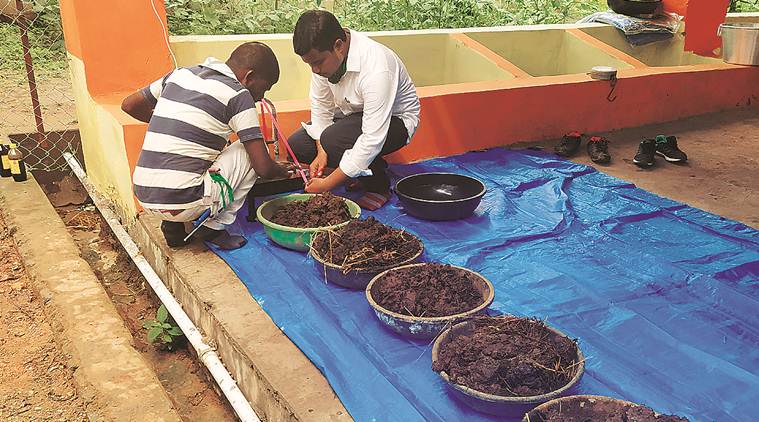
Chhattisgarh: Baghel Govt Kicks off Scheme to Buy Cow Dung
The Chhattisgarh government’s Godhan Nyay Yojana, under which cow dung will be procured from cattle rearers for production of organic fertiliser, was launched on Monday. Amid rising Covid-19 cases, cabinet ministers and district representatives inaugurated the scheme at various Godhan collection centres in the state. The total collection of cow dung on the first day was 1,994 quintals.
According to the scheme, the government will buy cow dung from registered animal husbandmen at Rs 2 per kg and, after processing it into vermicompost, sell it back to farmers for Rs 8 per kg. According to a government official, this will provide additional income to farmers and ensure that cattle are taken care of, leading to fewer strays.
The government plans to use gothans (cow sheds) to implement the scheme. As part of Gram Suraji Yojana, it had decided to make 5,000 gothans. Now, with Godhan Nyay Yojana, it plans to set up Gothans in all 11,630 gram panchayats. However, only 2,785 cowsheds have been completed.
Chief Minister Bhupesh Baghel also inaugurated the scheme amid festivities at his official residence. He said it would be a boon to farmers and cattle rearers, as well as for the rural economy during the pandemic, according to a statement. “Godhan Nyay Yojana will not only help cattle ranchers earn extra income, but also help in tackling the problem of open grazing by cattle and encourage use of organic fertilizers,” he said.
However, not all were convinced. In Bijapur city, there are 96 registered animal husbandmen. Only 11 of them showed up for the scheme launch and sold 400 kg of cow dung. “We have a vermicompost setup. We will engage self-help groups in buying, weighing and treating the dung before it gets converted into bio-manure,” Bijapur CMO Pawan Meriya said.
Some farmers, too, were not on board with the scheme. Sudesh Tekam, convenor of a farmers’ organisation in Rajnandgaon, said, “We have all decided not to sell cow dung to the government. If we sell now, it will become a noose around our neck later at a higher cost, because officials will push it on us.”
Source: The article is extracted from The IndianExpress, July 21, 2020.
